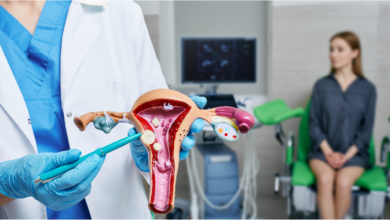
What is a sleep disorder?
Sleep disorders are conditions that disrupt your sleep patterns and interfere with your ability to sleep comfortably at night. They can have a significant negative impact on your physical and mental health.
What are the symptoms of sleep disorders?
Common symptoms of sleep disorders include:
- Difficulty falling asleep
- Waking up frequently at night
- Daytime sleepiness or fatigue
- Difficulty staying awake
- Sleepwalking or talking in sleep
- Nightmares or scary dreams at night
Who can suffer from a sleep disorder?
Sleep disorders can affect anyone, regardless of age, gender, or background. However, certain factors can increase the risk, such as:
- Stress and anxiety
- Underlying medical conditions
- Lifestyle factors (e.g., irregular sleep schedules, excessive caffeine or alcohol consumption)
- Medications
- Genetics
How many types of sleep disorders are there?
There are many types of sleep disorders, including:
- Insomnia: Difficulty falling asleep or staying asleep.
- Obstructive sleep apnea: Disordered breathing during sleep due to blocked airways.
- Narcolepsy: Excessive daytime sleepiness and sudden sleep attacks.
- Restless legs syndrome (RLS): Uncomfortable sensations in the legs that compel movement.
- Sleepwalking: Walking or performing complex behaviors during sleep.
- Sleep talking: Talking during sleep.
What tests are available for sleep disorders?
A healthcare professional can diagnose sleep disorders based on a thorough evaluation, including:
- Medical history: Assessing sleep habits, symptoms, and possible underlying conditions.
- Sleep diary: Tracking sleep patterns and symptoms.
- Polysomnography: A sleep study that monitors brain activity, heart rate, breathing, and other bodily functions during sleep.
What is the treatment for sleep disorders?
Treatment for sleep disorders varies depending on the underlying cause. Common approaches include:
- Lifestyle changes: establishing a regular sleep schedule, creating a sleep-friendly environment, limiting caffeine and alcohol intake, and managing stress.
- Medication: In some cases, sleep aids or medications for underlying conditions may be prescribed.
- Cognitive-behavioral therapy for insomnia (CBT-I): A behavioral therapy approach to address sleep-related thoughts and behaviors.
- Continuous positive airway pressure (CPAP): A device used to treat obstructive sleep apnea by keeping the airway open.
What diet should I follow?
While there is no specific “sleep diet,” a healthy and balanced diet can support overall health, including sleep quality. Consider:
- Avoid heavy meals before bedtime: Large meals can disrupt sleep.
- Limit caffeine and alcohol: These substances can interfere with sleep.
- Hydrating adequately: Dehydration can affect sleep.
- Incorporating sleep-promoting nutrients: Magnesium, tryptophan, and melatonin are often associated with better sleep.
Which doctor will treat sleep disorders?
• Pulmonologist
Can sleep disorders be completely cured?
Treating sleep disorders depends on the specific condition. Some, such as insomnia or sleep apnea, can be effectively managed with proper treatment. However, others may require ongoing management. It’s important to consult a healthcare professional for a personalized treatment plan.





